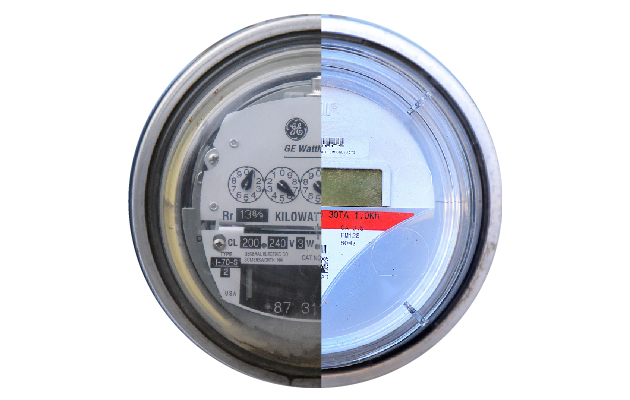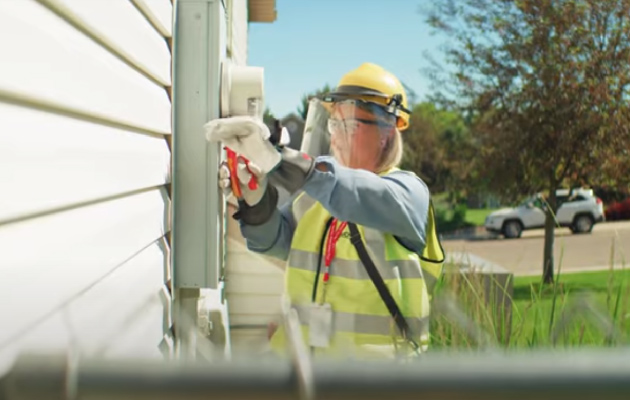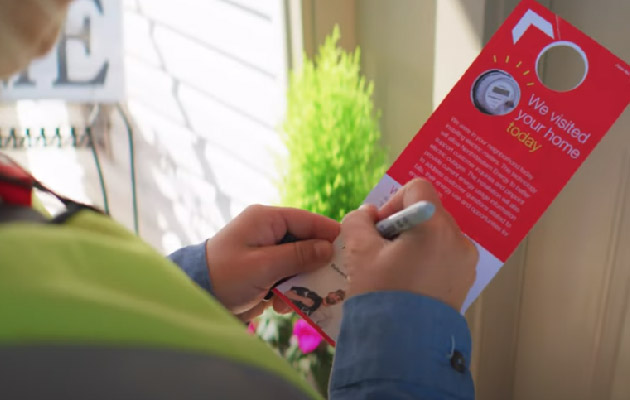Montana Meter Upgrade
NorthWestern Energy will install 590,000 new electric meters and gas modules in Montana.
- This technology upgrade will allow two-way communication between NorthWestern Energy and its meters on customer homes and businesses.
- In most cases, the system will notify NorthWestern Energy of an outage.
- Crews can restore service faster.
- Current energy use information is available for customer questions about bills, energy use and opportunities for energy savings
- System voltage information identifies problems before those problems cause outages.
Montana Digital Meter Upgrade
Moving Toward a Sustainable Energy Future

Moving Toward a Sustainable Energy Future
Advanced Meter FAQs
What is the advanced meter project timeline in Montana?
NorthWestern Energy began installation in Montana in 2021. Here is a list of approximate dates for the Montana Meter Upgrade project by area:
• Missoula Division: completed August 2022
• Butte Division: completed June 2022
• Bozeman Division: July 2022 – January 2024
• Lewistown District: February 2024 – July 2024
• Havre District: April 2024 – October 2024
• Helena Division: June 2024 – May 2025
• Great Falls Division: August 2024 – May 2025
Who will change my meter?
NorthWestern Energy contracted with Tru-Check to install the new digital meters, the same company that installed the first generation, one-way communication digital meters in 1998 that are in use today.
Tru-Check technicians will wear apparel with the Tru-Check logo and will carry a NorthWestern Energy contractor identification badge.
Will I have to pay for the meter?
When will the meters be installed and do I need to be home?
Most of the installations will occur Monday through Friday during business hours, though there will be cases when evening or weekend installations may be necessary. Customers don't need to be home.
A door hanger will let residents know their upgrade was successful. If the technician cannot perform the upgrade, a door hanger will be left with instructions to call to make an appointment.
If you are both an electric and natural gas NorthWestern Energy customer, the new electric meter will be installed first and the new gas module will be installed during a follow-up visit to your home or business in about eight weeks.
What happens to the meter on my home or business now?
Are radio frequency (RF) emissions coming from the meters and modules?
Yes. The Federal Communications Commission (FCC) regulates the safety limits for all RF emissions, and smart meter and module emissions make up a small portion of the limit. The RF emissions of the one-way communication meters in use now and the two-way communication meters that are being installed for this technology upgrade are both approved by the FCC. Radio frequency emissions are also produced by common household devices such as microwaves, baby monitors and TVs.
Is customer information protected?
Yes. Customer privacy and security are NorthWestern Energy priorities. The company’s strict security standards have contributed to protecting the energy grid and customer privacy for years. The meters do not collect, store or transmit any personally identifiable information.
The meters measure total energy and cannot differentiate energy usage by appliance or anything else within a home or business. The transmitted energy use information is encrypted.What if I don’t want an upgraded meter?
Customers who want to keep their existing meters can call NorthWestern at 888-467-2669 or email NorthWesternEnergyMeters@northwestern.com to be added to the bypass list. Customers who previously requested an opt out do not need to contact NorthWestern again to be bypassed and keep their meters.
NorthWestern will be reaching out to customers who received an advanced meter despite their request to opt out. For those who still wish to opt-out, NorthWestern will ensure that the advanced meter is removed and replaced with a meter similar to the one that was there before. Customers will not be charged for this service.
Customers who have questions about the advanced meter opt-out program can contact NorthWestern at 888-467-2669
or the Montana Public Service Commission at 1-800-646-6150 or pschelp@mt.gov.
How do I read my meter?

NorthWestern Energy challenging federal short-sighted rules to keep energy service reliable for our Montana customers
Date: May 3, 2024
TYPE: News
NorthWestern Energy President & CEO Brian Bird
When a switch is flipped, the power comes on.
Power bills are reasonable.
Power generation is as clean as possible.
That’s what NorthWestern Energy’s Montana customers tell us they want.
We listen.
The Environmental Protection Agency doesn’t.
The EPA’s new rules for the power industry threaten this nation’s energy security. One rule specifically targets the Colstrip Plant that Montanans depend on for reliable energy service.
NorthWestern Energy will join others in the industry to challenge the EPA’s short-sighted rules. We’ll fight the EPA’s attack on the Colstrip Plant that provides our Montana customers power in all weather conditions.
Limiting climate change is a shared goal. The energy industry and NorthWestern Energy are taking actions to transition to an even cleaner energy future. The transition must and does include achievable timelines, utilize proven, cost effective technology and maintain reliable, affordable energy service.
The EPA’s new rules for the power industry threaten a reality-based transition.
The EPA is directing the energy industry to spend billions of dollars to employ carbon capture technology – still in development, unavailable and nowhere close to being cost effective – or shutdown on-demand coal and natural gas plants that keep the power in this country on in all weather conditions. The EPA has no plan to make sure reasonable replacements are available if plants are forced to close.
The EPA is moving one rule just barely out-of-reach for only the Colstrip Plant. This will force it to either add hundreds of millions of dollars of new equipment or shutdown. The Colstrip Plant kept power on for Montanans when it was 45 degrees below for days in a row in January.
What could be achieved? The Colstrip Plant’s 99.6% emissions efficiency for air toxins would improve 0.2%. Montanans’ power rates would increase. Not a dime of that cost would be invested on additional on-demand generation, which is exactly what Montana needs.
Unbelievable.
NorthWestern Energy and our peers offered the EPA input about the reality of what it takes to provide this country with reliable energy service. Energy industry personnel – experts experienced in meeting the obligation to provide reliable, safe energy service to customers – provided data about achievable timelines and the limitations of emerging technology.
The EPA didn’t listen.
EPA Administrator Regan should understand that delivering Montanans energy in a spectacular part of the country has unique challenges – a service territory with more power poles than customers that experiences extreme winter conditions and is served by a constrained transmission system with limited capabilities at times to import out-of-state power.
But EPA Administrator Regan, who apparently has not been to Montana, falsely told a Congressional committee that the Colstrip Plant is “cheating the system” and expressed concerns about the plant’s mercury emissions.
The Colstrip Plant meets state and federal mercury emissions rules.
Montana’s mercury emissions rules are more stringent than and were in place before the federal EPA’s mercury emissions standards. The Colstrip Plant will meet the EPA’s new mercury emissions rules as equipped now.
Unbelievable.
Tearing down a critical bridge before the replacement is built would halt traffic. Shuttering on-demand power generation before reasonable replacements are available will harm our economy and put reliable energy service in real jeopardy.
The EPA’s rules will force resources that could be invested to support the development of clean energy generation and storage technology to be spent instead on unproven carbon capture technology.
The EPA’s rules will force resources to be spent at the Colstrip Plant for an incremental change in air toxin emission efficiency that would provide little or no improvement to air quality for Montanans, but will raise their power bills.
NorthWestern Energy delivers reliable, safe energy service at the most affordable rates possible. The resources serving our Montana customers are 58% carbon free, better than the national industry average of 41%.
Our employees work around the clock, every day in all weather conditions to deliver power to the communities where they live and raise their families.
We cannot let short-sighted federal rules derail a realistic, reasonable transition to an even cleaner energy future.




